Schlagwort: Research
-

Delivering a culturally relevant computing curriculum: new guide for teachers
Reading Time: 7 minutesIn computing education, designing equitable and authentic learning experiences requires a conscious effort to take into account the characteristics of all learners and their social environments. Doing this allows teachers to address topics that are relevant to a diverse range of learners. To support computing and computer science teachers with this work,…
-
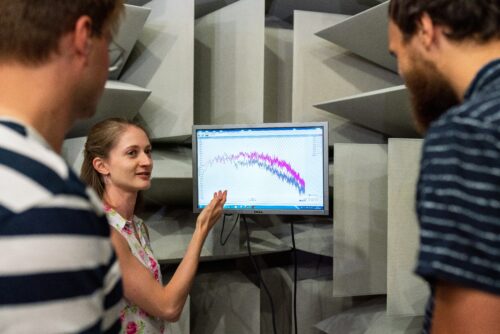
Educating young people in AI, machine learning, and data science: new seminar series
Reading Time: 6 minutesA recent Forbes article reported that over the last four years, the use of artificial intelligence (AI) tools in many business sectors has grown by 270%. AI has a history dating back to Alan Turing’s work in the 1940s, and we can define AI as the ability of a digital computer or…
-

Introducing the Raspberry Pi Computing Education Research Centre
Reading Time: 4 minutesI am delighted to announce the creation of the Raspberry Pi Computing Education Research Centre at the University of Cambridge. With computers and digital technologies increasingly shaping all of our lives, it’s more important than ever that every young person, whatever their background or circumstances, has meaningful opportunities to learn about how…
-

The digital divide: interactions between socioeconomic disadvantage and computing education
Reading Time: 6 minutesDigital technology is developing at pace, impacting us all. Most of us use screens and all kinds of computers much more than we did five years ago. The total number of apps downloaded globally each quarter has doubled since 2015, reflecting both increased smartphone penetration and the increasingly prominent role of apps…
-

Physical programming for children with visual disabilities
Reading Time: 7 minutesWhen Stack Overflow conducted a survey of 64,000 software engineers, it found that 1% of their respondents were blind — a far higher percentage than among the total population. Yet it is far from easy for young people with visual disabilities to engage in learning programming in school. In this month’s seminar,…
-
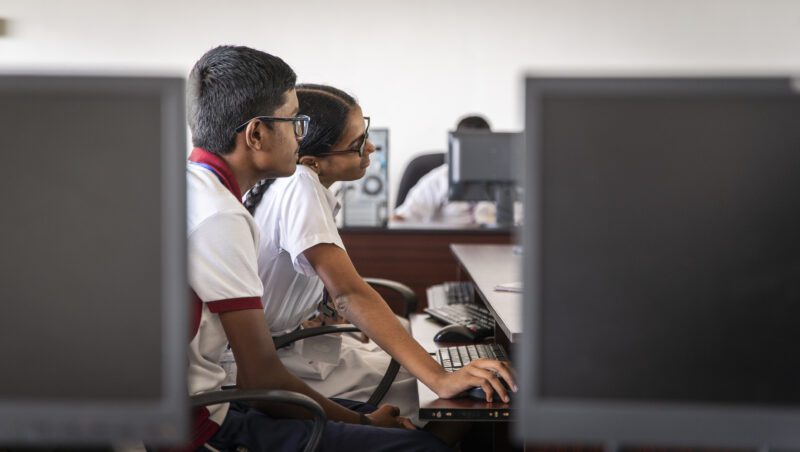
What makes an impact on gender balance in computing education? Answers from experts
Reading Time: 6 minutesThe latest event in the Raspberry Pi Foundation series of research seminars was our first panel discussion, with formal and non-formal learning opportunities in computing education and their impact on gender balance as its theme. The panel was chaired by Dr Yota Dimitriadi, Associate Professor of Computing at the University of Reading,…
-
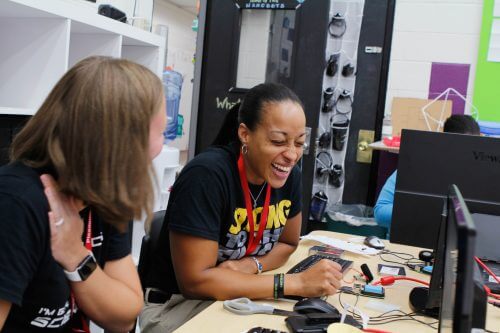
How can we design inclusive and accessible curricula for computer science?
Reading Time: 7 minutesAfter a brief hiatus over the Easter period, we are excited to be back with our series of online research seminars focused on diversity and inclusion, where in partnership with the Royal Academy of Engineering, we host researchers from the UK and USA. By diversity, we mean any dimension that can be…
-
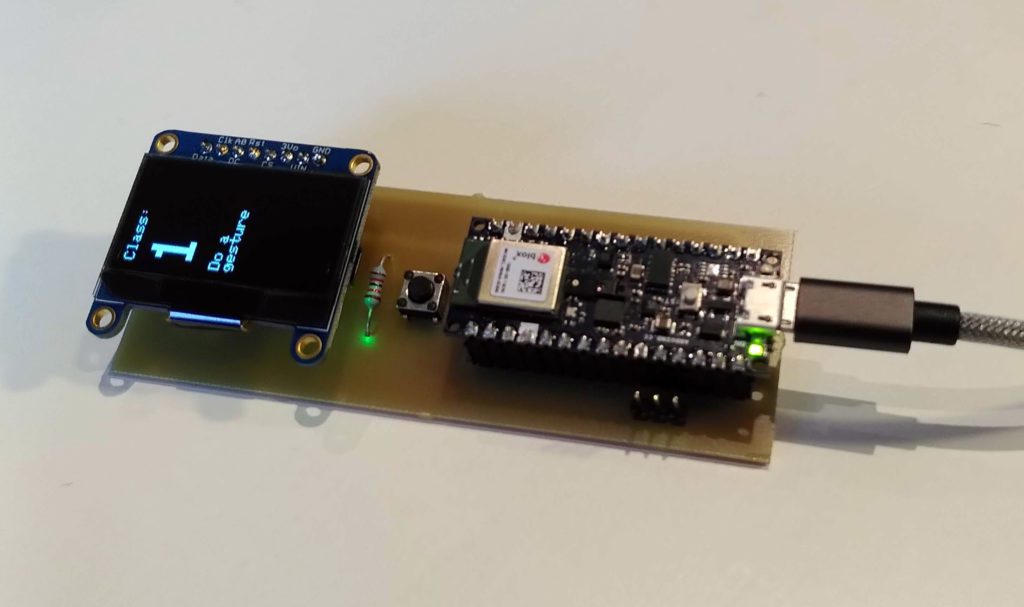
Customizable artificial intelligence and gesture recognition
Reading Time: 2 minutesArduino Team — April 15th, 2021 In many respects we think of artificial intelligence as being all encompassing. One AI will do any task we ask of it. But in reality, even when AI reaches the advanced levels we envision, it won’t automatically be able to do everything. The Fraunhofer Institute for…
-
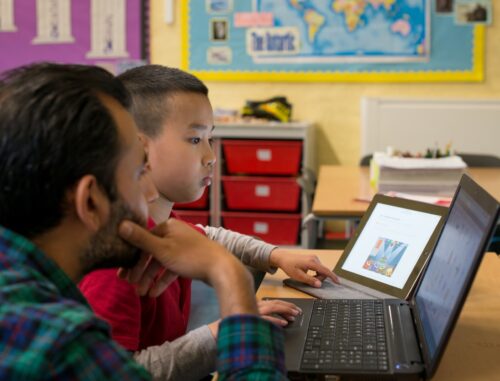
Our new SIGCSE Special Project on culturally relevant resources for computing
Reading Time: 5 minutesOver the last 20 years, researchers and educators have increasingly aimed to develop computing curricula that are culturally responsive and relevant. Designing equitable and authentic learning experiences in computing requires conscious effort to take into account the characteristics of learners and their social environments, in order to address topics that are relevant…
-
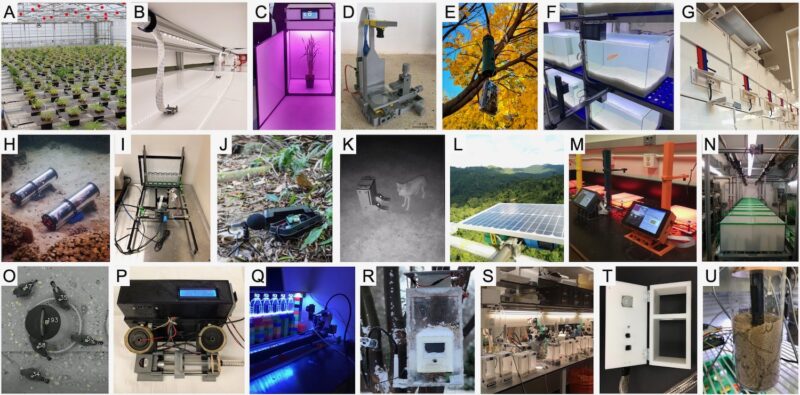
Raspberry Pi: a versatile tool for biological sciences
Reading Time: 3 minutesOver the nine-ish years since the release of our first model, we’ve watched grow a thriving global community of Raspberry Pi enthusiasts, hobbyists, and educators. But did you know that Raspberry Pi is also increasingly used in scientific research? Some of the scientific applications of Raspberry Pi that Jolle found Dr Jolle…
-
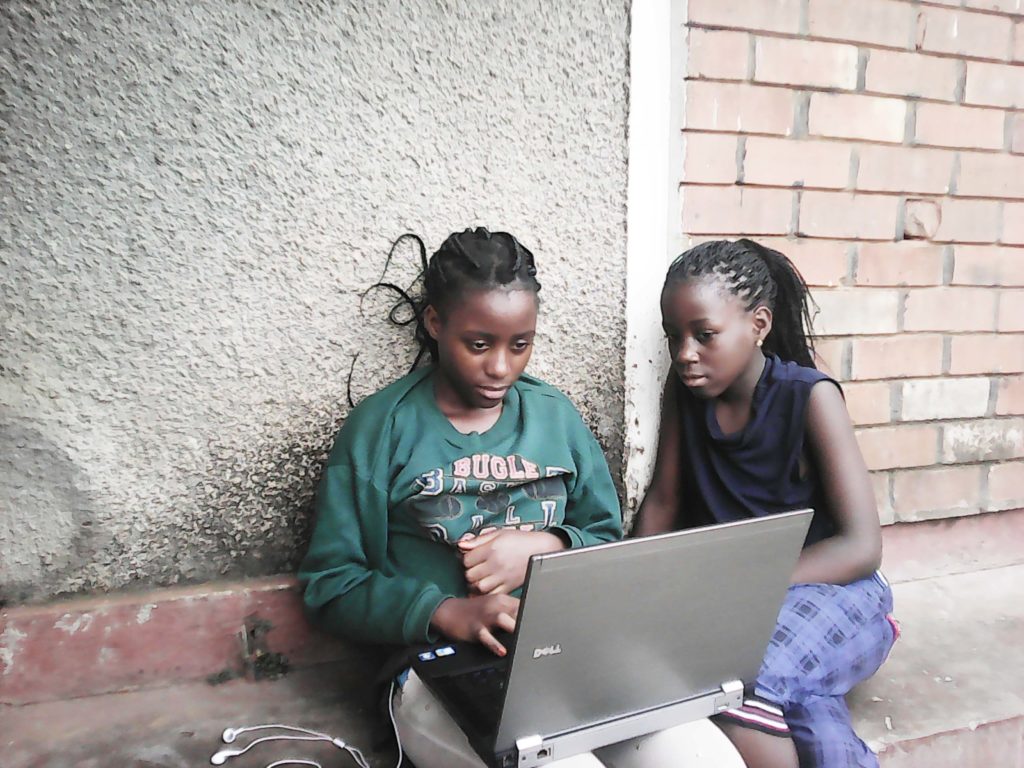
Engaging Black girls in STEM learning through game design
Reading Time: 6 minutesToday is International Women’s Day, giving us the perfect opportunity to highlight a research project focusing on Black girls learning computing. Between January and July 2021, we’re partnering with the Royal Academy of Engineering to host speakers from the UK and USA to give a series of research seminars focused on diversity…
-
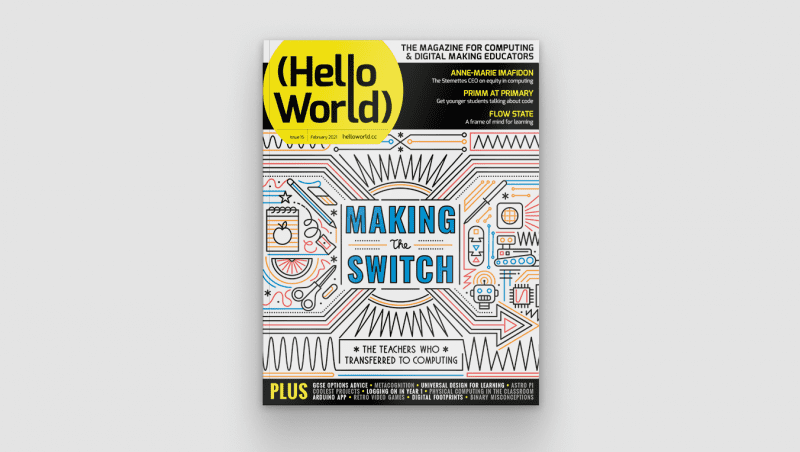
Universal design for learning in computing | Hello World #15
Reading Time: 7 minutesIn our brand-new issue of Hello World magazine, Hayley Leonard from our team gives a primer on how computing educators can apply the Universal Design for Learning framework in their lessons. Universal Design for Learning (UDL) is a framework for considering how tools and resources can be used to reduce barriers and…
-

What does equity-focused teaching mean in computer science education?
Reading Time: 6 minutesToday, I discuss the second research seminar in our series of six free online research seminars focused on diversity and inclusion in computing education, where we host researchers from the UK and USA together with the Royal Academy of Engineering. By diversity, we mean any dimension that can be used to differentiate…
-
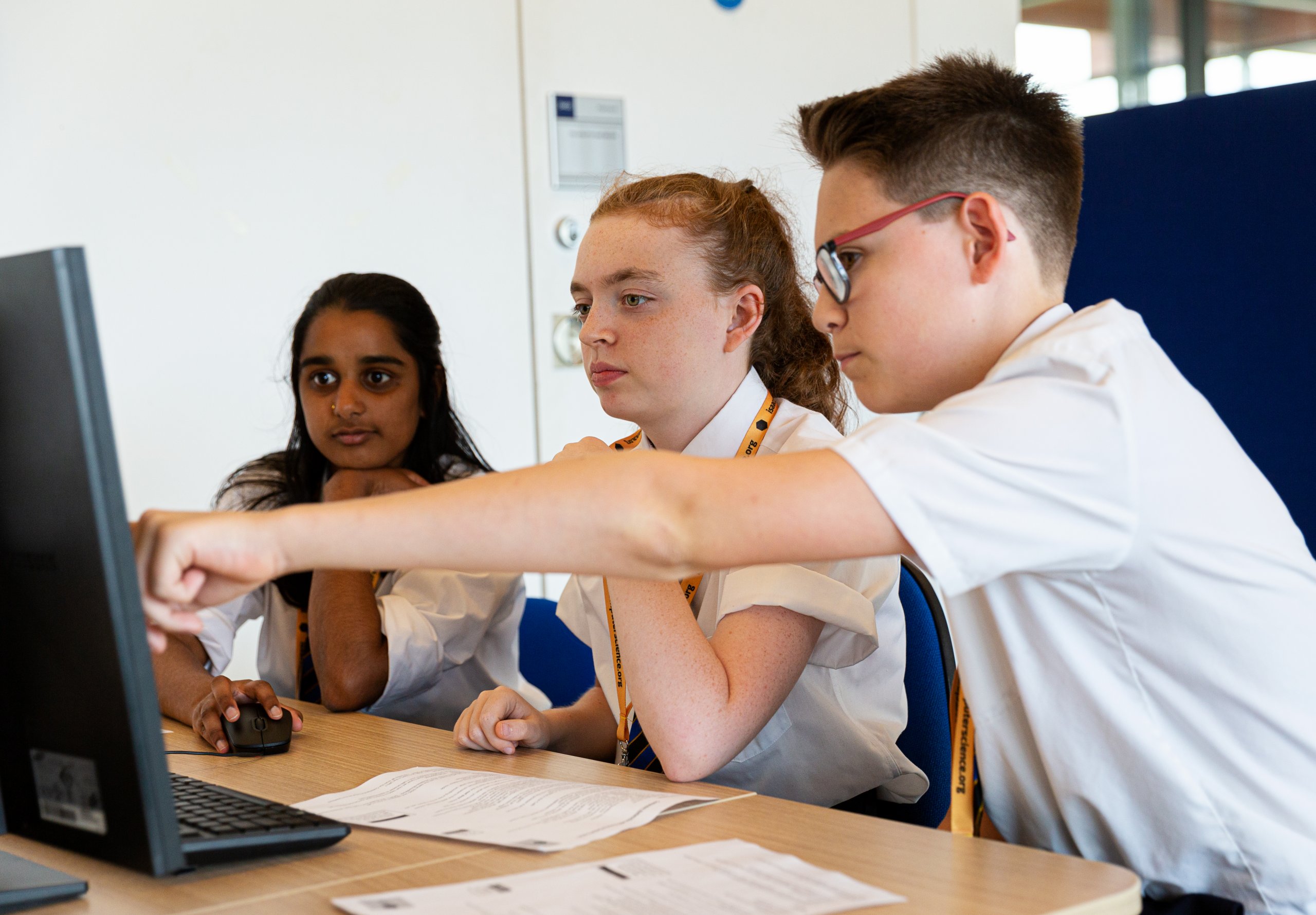
Computing education and underrepresentation: the data from England
Reading Time: 6 minutesIn this blog post, I’ll discuss the first research seminar in our six-part series about diversity and inclusion. Let’s start by defining our terms. Diversity is any dimension that can be used to differentiate groups and people from one another. This might be, for example, age, gender, socio-economic status, disability, ethnicity, religion,…
-

Block-based programming: does it help students learn?
Reading Time: 5 minutesAt the Raspberry Pi Foundation, we are continually inspired by young learners in our community: they embrace digital making and computing to build creative projects, supported by our resources, clubs, and volunteers. While creating their projects, they are learning the core programming skills that underlie digital making. Over the years, many tools…
-
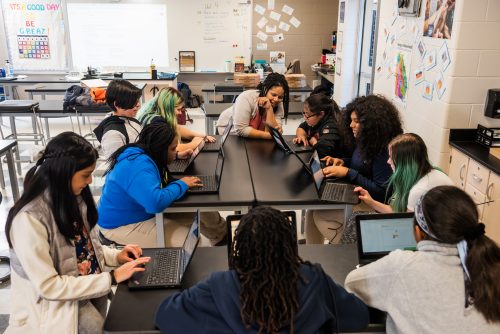
Diversity and inclusion in computing education — new research seminars
Reading Time: 2 minutesAt the Raspberry Pi Foundation, we host a free online research seminar once a month to explore a wide variety of topics in the area of digital and computing education. This year, we’ve hosted eleven seminars — you can (re)discover slides and recordings on our website. Now we’re getting ready for new…
-
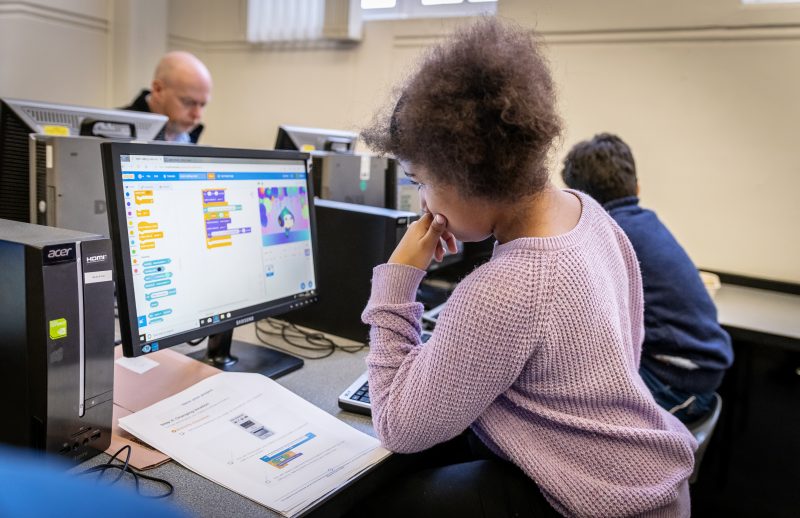
PRIMM: encouraging talk in programming lessons
Reading Time: 5 minutesWhenever you learn a new subject or skill, at some point you need to pick up the particular language that goes with that domain. And the only way to really feel comfortable with this language is to practice using it. It’s exactly the same when learning programming. In our latest research seminar,…
-
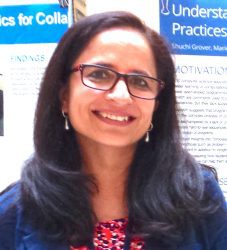
Formative assessment in the computer science classroom
Reading Time: 5 minutesIn computing education research, considerable focus has been put on the design of teaching materials and learning resources, and investigating how young people learn computing concepts. But there has been less focus on assessment, particularly assessment for learning, which is called formative assessment. As classroom teachers are engaged in assessment activities all…
-

Embedding computational thinking skills in our learning resources
Reading Time: 3 minutesLearning computing is fun, creative, and exploratory. It also involves understanding some powerful ideas about how computers work and gaining key skills for solving problems using computers. These ideas and skills are collected under the umbrella term ‘computational thinking’. When we create our online learning projects for young people, we think as…
-

How is computing taught in schools around the world?
Reading Time: 6 minutesAround the world, formal education systems are bringing computing knowledge to learners. But what exactly is set down in different countries’ computing curricula, and what are classroom educators teaching? This was the topic of the first in the autumn series of our Raspberry Pi research seminars on Tuesday 8 September. We heard…
-

Gender balance in computing: current research
Reading Time: 3 minutesWe’ve really enjoyed starting a series of seminars on computing education research over the summer, as part of our strategy to develop research at the Raspberry Pi Foundation. We want to deepen our understanding of how young people learn about computing and digital making, in order to increase the impact of our…
-
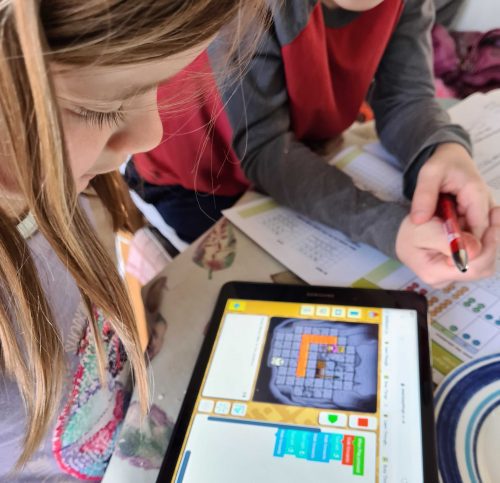
Testing young children’s computational thinking
Reading Time: 5 minutesComputational thinking (CT) comprises a set of skills that are fundamental to computing and being taught in more and more schools across the world. There has been much debate about the details of what CT is and how it should be approached in education, particularly for younger students. In our research seminar…